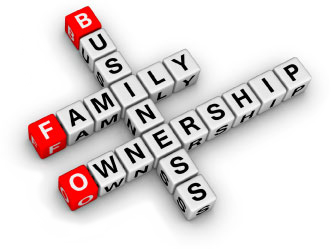A scholarly article recently came out in the Journal of Small Business and Enterprise Development analyzing family business ownership behaviors and the financial performance of their firms and family assets. Specifically, they examined four particular behaviors.

Key family business ownership behaviors:
- Professionalism. The authors define professionalism as “the extent to which owners meet roles and responsibilities. This includes adhering to family and/or business agreements, respect for hierarchy and lines of authority, and policies and procedures.” Other professional behaviors include that nonemployee owners didn’t make independent decisions about the business or make inappropriate demands on those who manage the business.
- Active governance. “This refers to the supervision of management by owners.” The researchers theorized that more active governance by owners would produce better economic performance for the family business.
- Owners as a resource. “This refers to the owners’ abilities to provide resources to the firm – both financial and nonfinancial.” The academics assumed that “the more the owners behave as a resource for the firm, the better the firm’s performance and that of other family assets would be.”
- Fulfillment of basic ownership duties. This list of duties included “providing capital, attending shareholder meetings, reviewing annual reports of the firm, keeping informed on business developments and firm activities, and providing inputs on various topics like investment strategy, succession planning, etc.” The writers posited that family businesses where owners fulfilled these basic functions would have better financial performance.
So which of the four behaviors positively affected family owned business financial performance, which negatively it, and which proved to be neutral?
Both owners as a resource and fulfillment of basic ownership duties proved to have no significant effect. For our family business readers and those of us who work in the trenches alongside them every day, these results were quite predictable. Most family businesses don’t require a great deal from their owners in the way of financial resources. Once the business is off the ground, they tend to be quite self-sufficient and self-funding (it’s no secret that most family businesses abhor debt and avoid it assiduously.) With respect to the fulfillment of basic ownership duties, this is a given in the sense that family business leaders take their stewardship seriously. However, taking a mature view of stewardship responsibilities wouldn’t necessarily translate into better financial performance.
Interestingly, active governance had a neutral to negative effect. It’s likely that the operators of the family firm view active governance as micromanaging. At The Family Business Institute, we are in the process of filling a new staff position. One of our interview questions is, “What behavior do you hate in the workplace?” The universal answer has been micromanagement. No one likes having others direct their behavior to a ridiculous degree.
The one behavior that proved to have a positive effect on financial performance was professionalism. That means family businesses develop clear roles and responsibilities and a healthy level of accountability. There is a clear organizational hierarchy, and people follow the lines on the organization chart to a reasonable degree. Family members and employees agree on and follow policies and procedures, and they don’t interfere in places outside their areas of responsibility. Nonemployee owners do not get involved in day-to-day management decisions. Family members make agreements among themselves and honor them thereby creating a healthy trust environment.
In short, professionalizing the family business pays off in a financial sense, and, in our experience, it also reduces the incidence of conflict and improves overall family harmony.

Interesting comment about family businesses and debt. There is a truck on a car lot I want to buy but cash flow is a little tight right now and I can’t stomach the thought of having to borrow the money to buy it. So it is still sitting on the lot! We levy early payment discounts whenever possible.
Family business leaders are incredibly debt averse, Chip, as you illustrate. Thanks